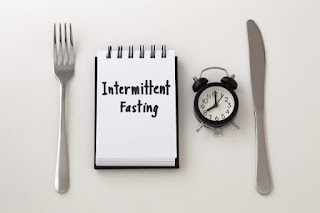Intermittent fasting (IF) has gained immense popularity in recent years, transforming how people approach health, wellness, and weight loss. As more people embrace IF, it's important to understand how it works, its benefits, and how you can incorporate it into your lifestyle. This guide will answer all your questions about intermittent fasting and provide useful tips for getting started.
What is Intermittent Fasting?
Intermittent fasting is an eating pattern that alternates between periods of eating and fasting. Unlike traditional diets that focus on what foods to eat, intermittent fasting focuses on when to eat. It has been shown to help with weight loss, improve metabolic health, and even extend lifespan. Intermittent fasting doesn’t prescribe specific foods to consume but emphasizes reducing the time window in which you eat during the day.
Popular Types of Intermittent Fasting:
- 16/8 Method: Fast for 16 hours and eat within an 8-hour window. For example, if you finish your dinner by 8 p.m., your next meal will be at noon the next day.
- 5:2 Diet: Eat normally for five days and restrict calorie intake (around 500-600 calories) on the other two days of the week.
- Eat-Stop-Eat: Involves fasting for 24 hours once or twice a week. For instance, you would not eat from dinner one day until dinner the next day.
- Alternate-Day Fasting: Fast every other day, consuming either very little or no food on fasting days.
How Does Intermittent Fasting Work?
When you fast, your body runs out of its immediate energy stores and starts using fat for fuel. This leads to fat burning, which can contribute to weight loss. During fasting periods, your insulin levels drop, allowing fat cells to release stored fat. Additionally, your body undergoes processes like autophagy, where it repairs and regenerates cells.
Intermittent fasting also helps in:
- Improved Insulin Sensitivity: This can help lower your risk of type 2 diabetes.
- Boosted Metabolism: Fasting can enhance fat burning and increase metabolic rate.
- Hormonal Benefits: Fasting raises levels of human growth hormone, which can aid in fat loss and muscle gain.
- Increased Longevity: Some studies suggest that intermittent fasting may promote longevity by encouraging cellular repair processes.
Benefits of Intermittent Fasting:
- Weight Loss: By restricting your eating window, intermittent fasting helps you naturally reduce your calorie intake, making it easier to lose weight.
- Improved Heart Health: IF can lower blood pressure, cholesterol levels, and inflammation, leading to better cardiovascular health.
- Better Brain Health: Fasting promotes brain function, boosts memory, and protects against age-related diseases such as Alzheimer’s.
- Improved Digestion: Giving your body a longer period to digest food can improve digestion and gut health.
- Increased Energy and Focus: Many people report feeling more energized and mentally alert when fasting.
How to Get Started with Intermittent Fasting
- Choose Your Method: Start by picking a fasting method that suits your lifestyle, such as the 16/8 method or the 5:2 diet.
- Start Slow: If you’re new to fasting, begin by gradually increasing your fasting window. For example, you could start by fasting for 12 hours and then increase it to 16 hours as your body adjusts.
- Stay Hydrated: Drink plenty of water, herbal teas, or black coffee during fasting hours to stay hydrated and curb hunger.
- Eat Nutrient-Dense Foods: When you break your fast, focus on healthy, balanced meals that include lean proteins, healthy fats, and fiber-rich vegetables.
- Be Consistent: Like any new habit, consistency is key. Stick with your fasting schedule to see the best results.
Intermittent Fasting FAQs:
1. Is Intermittent Fasting Safe? Yes, intermittent fasting is safe for most healthy individuals. However, if you have underlying health conditions, such as diabetes or an eating disorder, consult with a healthcare professional before starting.
2. Can I drink coffee or tea during the fasting period? Yes, as long as your beverages are calorie-free, such as black coffee, tea, or sparkling water. Avoid adding sugar or cream, as they can break the fast.
3. Will Intermittent Fasting Cause Muscle Loss? Intermittent fasting is not likely to cause muscle loss when done correctly. Combining fasting with strength training can help preserve and build muscle while burning fat.
4. Can I exercise while fasting? Yes, light to moderate exercise can be done during fasting periods. However, listen to your body, and don’t overexert yourself, especially when starting out.
5. Can I eat anything during my eating window? While there are no specific food restrictions, it’s recommended to focus on nutrient-dense foods. Eating junk food will not help you reap the full benefits of intermittent fasting.
6. How long should I fast for? You can start with shorter fasts, such as 12 hours, and gradually extend to 16 hours. The ideal fasting duration depends on your personal health goals and lifestyle.
Conclusion:
Intermittent fasting is a powerful tool for improving your health, promoting weight loss, and increasing your energy levels. Whether you’re looking to shed a few pounds, improve your metabolic health, or give your digestive system a break, intermittent fasting can be a great way to achieve your goals. Remember, it’s important to listen to your body, stay hydrated, and choose an approach that fits your lifestyle. With patience and consistency, you’ll be on your way to a healthier and more energized life.
If you're ready to give intermittent fasting a try, start small, stay committed, and watch as your health improves over time!
By following this guide, you can make informed choices about whether intermittent fasting is the right approach for you. Feel free to share your experiences and ask any questions in the comments below!


%20Foods%20That%20May%20Ease%20Your%20Pain.jpg)





%20Benefits,%20Uses,%20and%20Everything%20You%20Need%20to%20Know%20-%20Healthy%20Roots%20&%20Habits,%20Healthy%20Roots%20&%20Habits%20Blog.jpg)
%20Benefits,%20Nutrition,%20Side%20Effects,%20and%20How%20to%20Use.jpg)


No comments:
Post a Comment